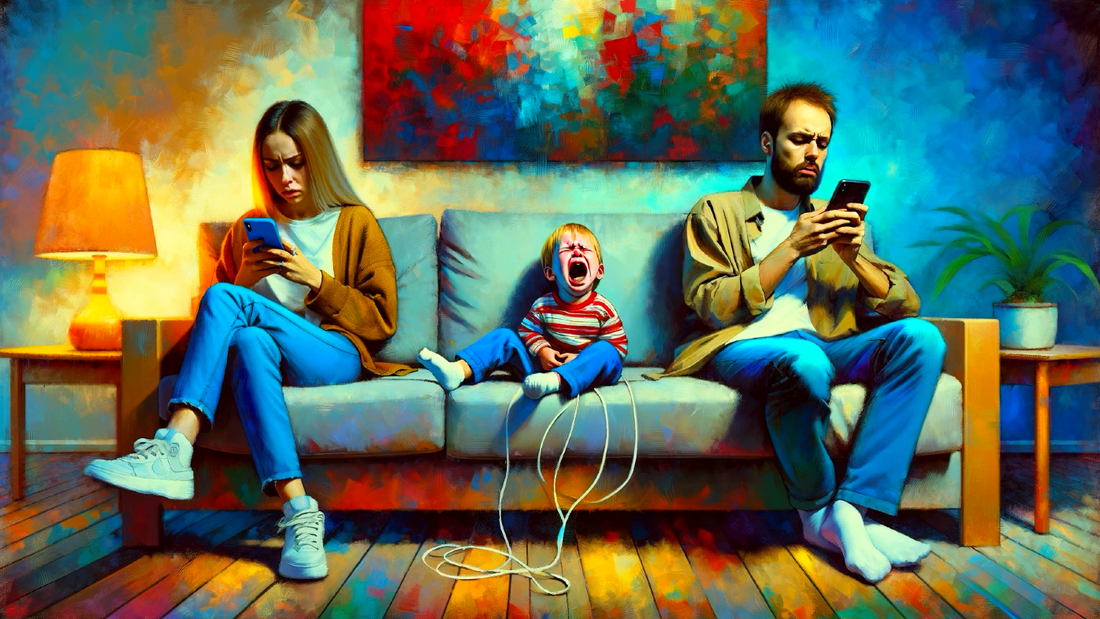
Digital Detox Diaries: The Deep Impact of Social Media on Our Lives and Society
Share
In an age where our lives are intertwined with digital platforms, the pervasive influence of social media on individual thought, relationships, and societal norms is a growing concern. A daring personal experiment, a week-long withdrawal from all social media, reveals startling insights into how these platforms engineer our interactions and shape our worldview. This piece delves into the alarming ways social media algorithms manipulate user engagement and the cascading effects on societal cohesion, with a special focus on their contribution to an increase in divorce rates.
The challenge was straightforward but daunting: to step away from the digital whirlwind for seven days. The aim was multifaceted—to escape the relentless pull of notifications and to critically evaluate what value, if any, social media added to one's life. The return to the digital world was eye-opening, laying bare the mechanics of engagement algorithms and their profound influence on our emotions, decisions, and relationships.
Once celebrated as beacons of global connectivity, social media platforms are now under scrutiny. At the heart of the debate are the algorithms that drive these platforms, designed to hook users by any means necessary. They adeptly mine our interests and bombard us with content that not only reinforces these interests but also promotes narratives likely to trigger strong emotional reactions. Particularly in the realm of relationship advice, the content skews heavily towards encouraging breakups over working through challenges, acting as an echo chamber that amplifies doubts and fosters dissatisfaction, potentially leading to the breakdown of relationships.
The ramifications of such manipulation ripple out into the real world, contributing to a societal shift evident in the rising divorce rates. Although establishing a direct cause-and-effect relationship is complex, the correlation between the proliferation of social media and the increase in divorces over the last two decades is striking. Under the guise of fostering connection, these platforms exploit vulnerabilities, nudging conversations and opinions towards polarization and discord, leading to a society increasingly fragmented.
The critique extends beyond the algorithms to question the moral responsibility of social media companies. By prioritizing user engagement over well-being, these corporations profit from exploiting human nature, raising ethical concerns about their role in the erosion of social fabric.
Moreover, the experiment sheds light on shifting perceptions towards dating apps and social media, particularly among younger generations. There's a growing disenchantment with the promise of digital platforms as facilitators of meaningful connections. This disillusionment mirrors the broader skepticism towards social media, recognizing them not as benign tools of interaction but as powerful shapers of social norms and individual psychologies.
The findings from this week-long digital detox highlight the urgent need for a collective reassessment of our engagement with social media. It advocates for a more conscious and informed approach to our digital habits. As we chart our course through the digital era, it's crucial to question, challenge, and redefine our relationship with social media, ensuring that technology serves us, not the other way around. The journey underscores the transformative power of disconnecting, encouraging us to reclaim our mental space, nurture authentic connections, and prioritize the richness of our real-life experiences over online presence.
The challenge was straightforward but daunting: to step away from the digital whirlwind for seven days. The aim was multifaceted—to escape the relentless pull of notifications and to critically evaluate what value, if any, social media added to one's life. The return to the digital world was eye-opening, laying bare the mechanics of engagement algorithms and their profound influence on our emotions, decisions, and relationships.
Once celebrated as beacons of global connectivity, social media platforms are now under scrutiny. At the heart of the debate are the algorithms that drive these platforms, designed to hook users by any means necessary. They adeptly mine our interests and bombard us with content that not only reinforces these interests but also promotes narratives likely to trigger strong emotional reactions. Particularly in the realm of relationship advice, the content skews heavily towards encouraging breakups over working through challenges, acting as an echo chamber that amplifies doubts and fosters dissatisfaction, potentially leading to the breakdown of relationships.
The ramifications of such manipulation ripple out into the real world, contributing to a societal shift evident in the rising divorce rates. Although establishing a direct cause-and-effect relationship is complex, the correlation between the proliferation of social media and the increase in divorces over the last two decades is striking. Under the guise of fostering connection, these platforms exploit vulnerabilities, nudging conversations and opinions towards polarization and discord, leading to a society increasingly fragmented.
The critique extends beyond the algorithms to question the moral responsibility of social media companies. By prioritizing user engagement over well-being, these corporations profit from exploiting human nature, raising ethical concerns about their role in the erosion of social fabric.
Moreover, the experiment sheds light on shifting perceptions towards dating apps and social media, particularly among younger generations. There's a growing disenchantment with the promise of digital platforms as facilitators of meaningful connections. This disillusionment mirrors the broader skepticism towards social media, recognizing them not as benign tools of interaction but as powerful shapers of social norms and individual psychologies.
The findings from this week-long digital detox highlight the urgent need for a collective reassessment of our engagement with social media. It advocates for a more conscious and informed approach to our digital habits. As we chart our course through the digital era, it's crucial to question, challenge, and redefine our relationship with social media, ensuring that technology serves us, not the other way around. The journey underscores the transformative power of disconnecting, encouraging us to reclaim our mental space, nurture authentic connections, and prioritize the richness of our real-life experiences over online presence.
